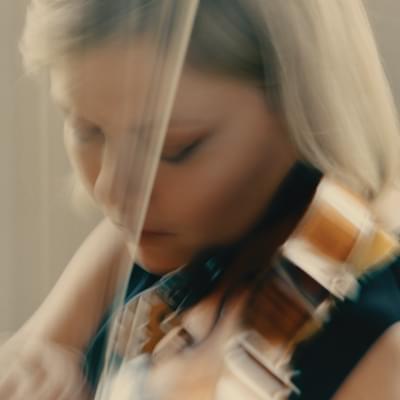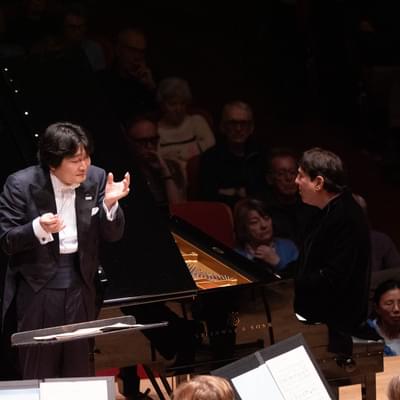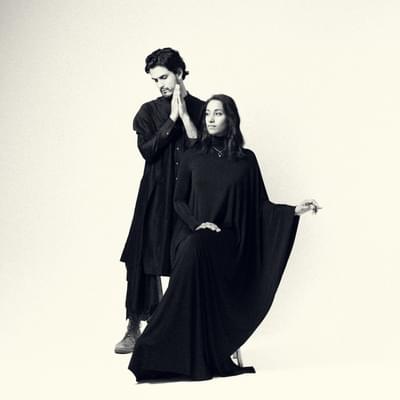Simon Halsey: 40 Years
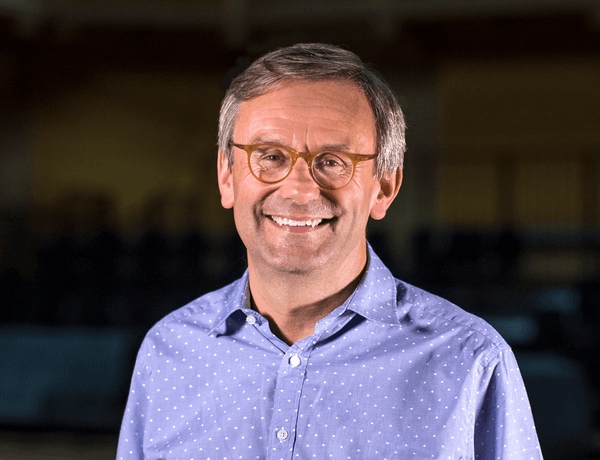
Full programme
- Handel, Zadok the Priest (6mins)
- Weir, Sing (2mins)
- Britten, Old Abram Brown (10mins)
- Ešenvalds, Stars (5mins)
- Handel, Waft her, angels (5mins)
- Parry, I was glad (6mins)
- Dove, There Was a Child (50mins)
Performers
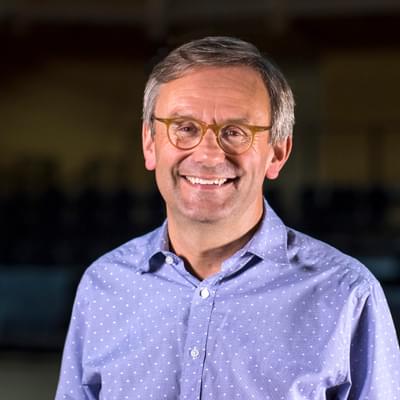
Simon Halsey CBE
Conductor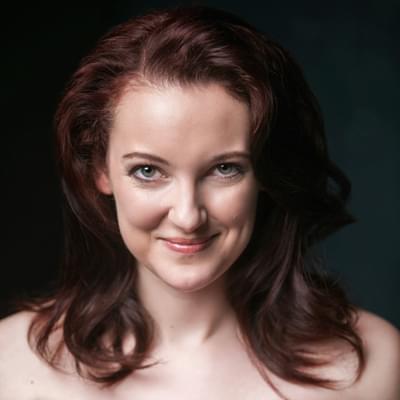
Jennifer France
Soprano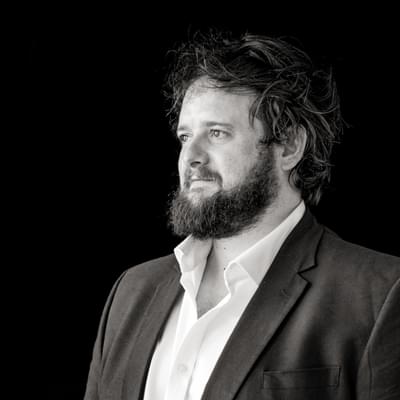
Allan Clayton
Tenor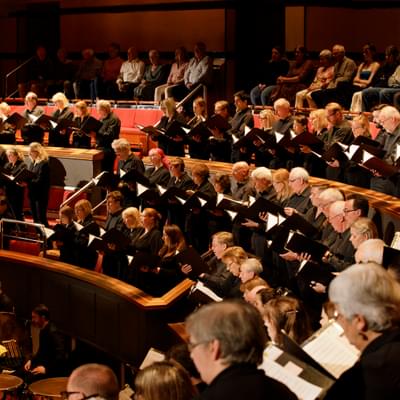
CBSO Chorus
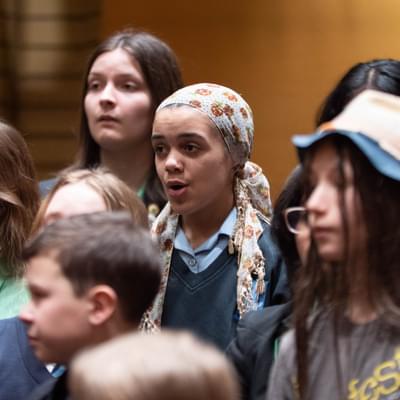
CBSO Youth Chorus
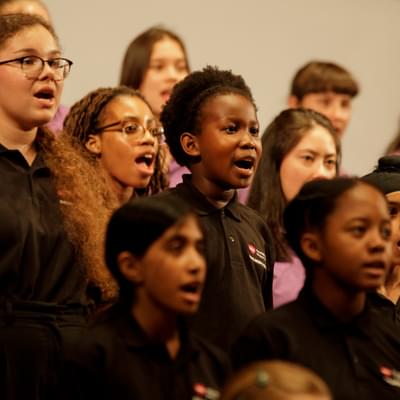
CBSO Children's Chorus
Introduction
At 5pm on November 5th 1982, Ed Smith, the CBSO‘s Chief Executive phoned me to offer me the job of Chorus Master. I was sitting in my office at the University of Warwick‘s Arts Centre. I was so pleased and excited that I ran all around the University‘s perimeter to blow off steam.
I’d wanted to work with symphonic choruses ever since I’d been a student and Richard Hickox had entrusted me with assistant work at the London Symphony Chorus.
The CBSO relationship had begun some months earlier when I had been invited to take one rehearsal of Haydn‘s Creation as Nicholas Cleobury, the excellent incumbent, was unavailable at short notice.
I had a wonderful time. The Chorus was splendid.
At the end of the rehearsal, Beresford King - Smith, Deputy Chief Executive and responsible for the Chorus, came to tell the singers that Nick‘s success with his orchestral work meant that there would now be a vacancy at the CBSO Chorus. I was exultant but tried not to show it!
I began with a recording of War Requiem for EMI with Simon Rattle recorded in the Great Hall of Birmingham University. I was 24 years old and had only enthusiasm and what little skill I’d picked up along the way to sustain me.
It worked; the CBSO stuck with me through thick and thin and, as the years passed, allowed us to form our Children‘s, Youth and community Choruses.
I am immensely grateful for 40 years of collaboration with thousands of singers, numerous pianists, colleague choral conductors, management, orchestra and my five Chief Conductors!
It does not get better than the family we have created in our wonderful facilities and therefore I haven’t moved on; its the defining opportunity of my life and I am beyond grateful to have been fostered and looked after by so many extraordinary people.
Thank you.
Simon Halsey, Chorus Director
Programme Notes
Alleluia! From the grandeur of Zadok the Priest to heartfelt modern masterpieces, there’s nothing that the CBSO’s family of choruses can’t sing. And for 40 years, Simon Halsey CBE has shown them the way to sing it. Tonight, the CBSO Chorus, CBSO Youth Chorus and CBSO Children’s Chorus come together to toast their Chorus Director with a concert of the music he loves best – and the audience gets to sing along too.
“And all the people rejoiced!” Nothing tops the sound of choral music when you’re in a mood to celebrate – and this whole programme is a celebration not just of Simon Halsey’s four decades with the CBSO Chorus, but of his life’s work: sharing the joy of communal singing on a city-wide, a national and (it’s no exaggeration to say) an international scale. For the coronation of King George II on 11th October 1727 Handel was commissioned to write four new Coronation Anthems. The rehearsals were kept secret, to prevent them from being mobbed by crowds of fans.
You can’t blame Handel for wanting to guard his big surprise. Imagine the impact of hearing this music for the first time! For the solemn anointing of the King, Handel begins with an orchestral build-up like nothing that had been heard before. It’s still one of the most thrilling evocations of mounting excitement in all music, and Zadok the Priest has been performed at every coronation since. Naturally, it ends with general rejoicing: “Alleluia, Amen!”
Judith Weir is an old friend of the CBSO and its choruses – the current Master of the King’s Music was our Composer in Association in the late 1990s, and she took a special interest in our family of singers. She composed Sing in 2014 as the first movement of a cycle called The Song Sung True - a brief, exuberant celebration (in her own words) of “the life-giving activity” of coming together as a choir. Simon points out that almost every important British composer since Holst has been involved with amateur singers, either in the classroom or in the community, and his own childhood was shaped by his encounters with Benjamin Britten - who worked closely with Simon’s father, the chorusmaster Louis Halsey. Old Abram Brown is the finale of Britten’s Friday Afternoons (1933-35), an outwardly simple canon that expands to involve not just the school-age singers for whom it was intended, but the full chorus, orchestra and even you, the audience.
The music of the Latvian composer Eriks Ešenvalds was another easy choice: he went to school with the CBSO’s former music director Andris Nelsons. With its luminous choral writing accompanied by the magical sound of water-tuned glasses, Stars (2011) was originally written for a choir in Salt Lake City but it has become an instant modern classic, and it’s a particular favourite of the CBSO Chorus. The aria Waft Her, Angels is an 18th century vision of the same kind of heavenly rapture – the moment in Handel’s oratorio Jephtha (1751) when the prophet Jephtha prays that his doomed daughter may be received serenely into heaven. Jephtha was Handel’s very last oratorio (he was already nearly blind in one eye) but there’s something sublime about the simplicity of this melody.
But we’re ending the first half, as we started, with a great shout of choral joy. “I Was Glad when they said unto me: We will go into the house of the Lord” – and as Parry lifts his choir’s voices to the heavens, it’s hard not to feel….well, what, exactly? This great anthem, created in 1902 for the coronation of King Edward VII and performed (with Zadok The Priest) at every coronation since, somehow manages to mingle pride, hope, nostalgia, tenderness and grandeur in a single soul-stirring arch of song. Music, in other words, that transcends time and place even as it speaks straight to the heart, now and for always.
There Was a Child
Oratorio for Soprano and Tenor Soloists, Adult Choir, Children's Choir and Orchestra.
Jonathan Dove
I I am the Song
II Childhood
III A Song About Myself
IV From all the Jails the Boys and Girls
V Over the Fence
VI All shod with steel
VII Romance
VIII New Worlds
IX There Was a Child
The British composer Jonathan Dove has been a colleague and friend of Simon Halsey’s for four decades – a relationship stretching back to their student days at Cambridge, and their subsequent work with City of Birmingham Touring Opera: the pioneering community opera company which evolved into today’s Birmingham Opera Company. Along the way, Dove has written numerous commissions for Simon’s choirs – but none more ambitious, or more heartfelt, than the oratorio There Was a Child, premiered in Norwich in 2009 by the CBSO and CBSC under Simon’s direction, and subsequently recorded. When the members of the CBSC were polled on which major works they would be eager to perform again, There Was a Child emerged as the undisputed favourite.
The story of the oratorio is best told by its commissioner, Rosemary Pickering, and by Jonathan Dove himself:
Rosemary van Allen (Pickering):
"Since my childhood, music – especially choral music – has given my life meaning, so commissioning a piece to celebrate my son Robert’s life seemed cathartic – if a little ambitious. Jonathan Dove was the obvious choice of composer for me. I had been struck by his theatre music over the years and in the 1990s worked with him on his first concerto commission; his strong feeling for community connected with my need for this piece to be universal. Robert’s father, Richard Van Allan, had been rehearsing Jonathan’s first main-stage opera, Flight, at Glyndebourne in the summer of 1999. Robert, aged 19, drowned while snorkelling in Thailand on 21 June that year.
Jonathan never knew Robert but we spent much time talking about him, and Jonathan has completely captured Robert’s spirit. He was a warm, kind, thoughtful, bright, gregarious and fearless person who grasped every opportunity that presented itself. His great compassion, true love of mankind and adventurous spirit continue to inspire all of us who knew and loved him.
There Was a Child, a modern oratorio, uses a sequence of poems to trace a young life from birth through childhood to young manhood. Robert would have been delighted that such a joyous piece of music should have been composed to honour him and all the young people who, like him, have been taken from this world too soon."
Jonathan Dove:
"When Rosemary Pickering asked me to write a piece to celebrate the life of her son, we both immediately felt it should involve singing. Singing with other people is one of the most joyful activities I know, so this had to be a choral work. And music celebrating young life should include the sound of children’s voices. The idea of mother and son suggested two soloists: soprano and tenor. Accompanying these different voices would be all the colours of the symphony orchestra. The Norfolk and Norwich Festival and the City of Birmingham Symphony Orchestra joined in this commission, of 2009, to create a large-scale piece of communal music-making.
I started looking for words for all these voices to sing. I found poems by Charles Causley and Langston Hughes describing the wonder of birth; by Wordsworth, Keats, Traherne and Emily Dickinson conjuring up different aspects of childhood – naughtiness, carefree playfulness, youthful adventures. My choices were informed by stories Rosie and Richard had told me about their son Robert – particular stories about a unique individual, but which also conjured up archetypal images of youthful liveliness, mischief and outdoor escapades.
Most of the texts are celebratory, but there is no avoiding the terrible moment when a young life is cut short in the middle of adventure. Shakespeare evokes the grief of a mother for her child, and Tichborne sings of death coming too soon. I did not want the piece to end here, and it was important for Rosie to remember all the joy her son’s short life brought her. Walt Whitman’s poem There Was a Child went Forth is a radiant vision of a child absorbing everything around him and connecting with the whole world."
© Richard Bratby
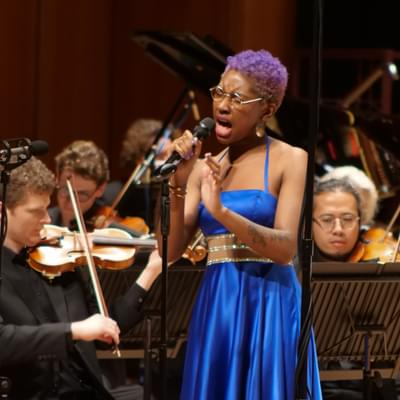
Family Concert: Where are all the Black Female Composers?
